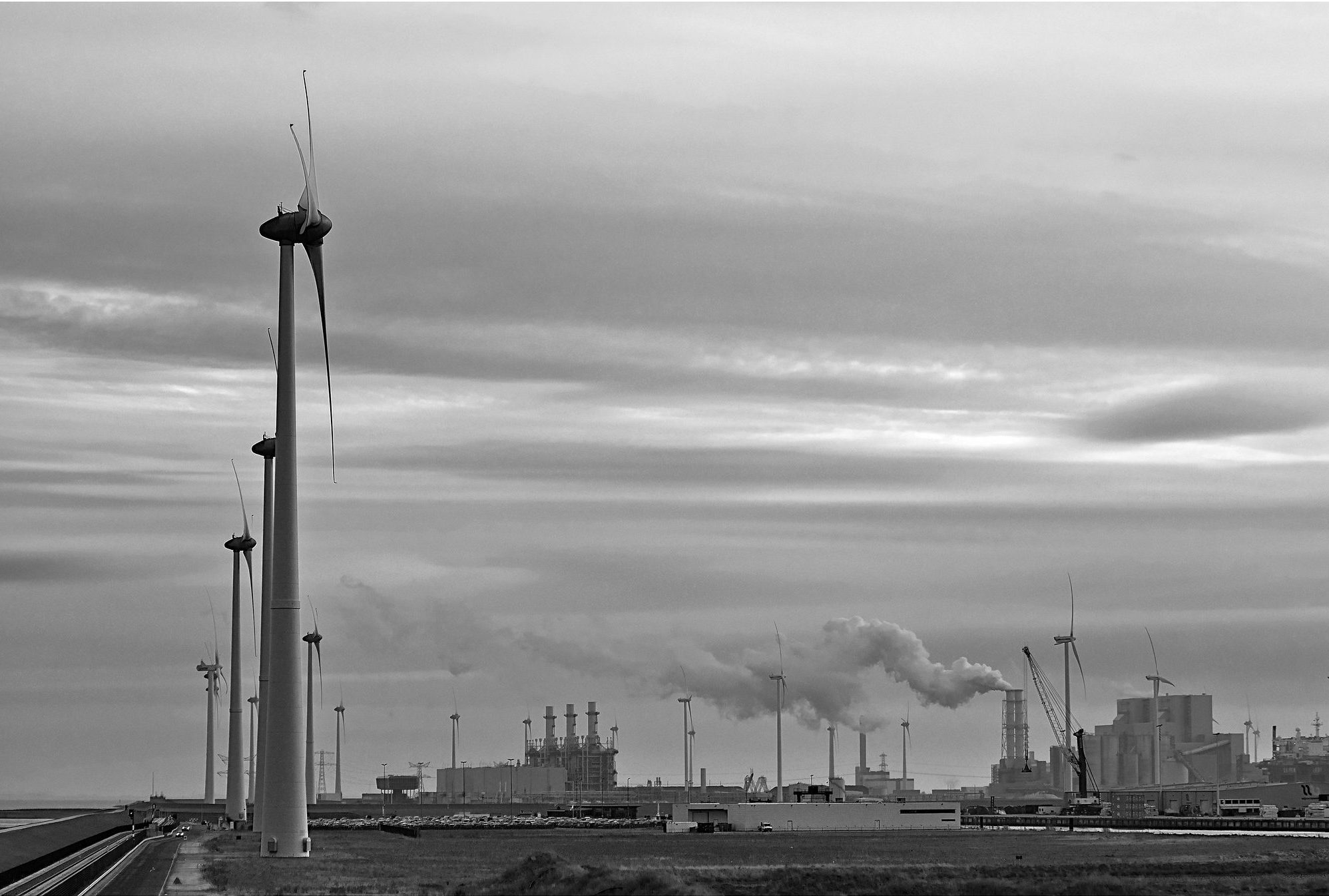High Ambitions But No Teeth in China’s Environmental Guidelines for Investing Abroad

As Chinese foreign direct investment (FDI) has increased rapidly throughout the years, so has Chinese companies’ environmental footprint around the globe. Energy, mining, and construction companies are the usual suspects, but heavy industries have also contributed to fragmented landscapes, affected biodiversity, and an increase in airborne particles that harm human health. Increases in reports of environmental wrongdoing have been proportional to higher levels of Chinese engagement, with countries in South and Southeast Asia leading the way. But we can also find examples in regions that are not a top destination for Chinese FDI, such as the Balkans.
While the Chinese leadership has been developing its climate goals in a slow but steady direction on par with other countries, the same cannot be said for environmental governance. As a green approach to economic development takes a lot more than investing in renewables, Chinese engagement abroad must undergo a severe metamorphosis before China can claim climate and environmental leadership.
Baby Steps Forward
It can be said without a doubt that China has accelerated its climate and environmental ambitions in the last decade. Most recently, Xi Jinping’s announcement at the 76th United Nations General Assembly that China will no longer fund the construction of coal-fired power plants overseas has singlehandedly turned the global tide against coal financing. To put things into perspective, China has remained the last big public financier of coal plants, with the Export-Import Bank of China and the China Development Bank accounting for 50 percent of global public finance alone between 2013 and 2018. The pledge does not come as a surprise as it is the result of an overall policymaking approach, which balances political stability and economic costs. Chinese-backed coal projects have garnered more and more disapproval and local resistance, and banking on coal has become financially unprofitable in most parts of the world.
Beyond the incentives for a coal phase-out, there is a strong business case for Chinese companies to adopt more environmentally friendly practices altogether. Limiting environmental degradation and pollution that harms human health along the Belt and Road Initiative (BRI) will increase confidence in the initiative and open the door for Chinese financial institutions to be able to raise capital more easily on the global capital markets.
Currently, however, Chinese stakeholders involved in the facilitation of companies investing abroad have created an architecture in which projects do not need to meet any environmental standards beyond those laid down in the legislation of the host state. In other words, Chinese enterprises investing abroad are only encouraged but not required to perform environmental impact assessment (EIA) studies, with no repercussions if they opt not to do so. In stark comparison, the Chinese government has demanded Chinese companies carrying out activities with an environmental angle at home to perform an EIA since 2003.
The Business & Human Rights Resource Centre, an independent non-profit organization working in a collaborative partnership with Amnesty International, has found 679 cases of human rights abuses and environmental damage allegations in the period between 2013 and 2020 linked to Chinese businesses’ conduct abroad. These include harm to indigenous peoples’ habitats, loss of livelihoods, environmental degradation, air and water pollution, and more. Companies took steps to respond to the allegations in only 102 instances out of the 679 cases reported. Hence, beyond environmental harm, another significant issue is that Chinese investors and project developers have not taken environmental harm seriously enough, as they have remained completely removed from discussions and remediation efforts.
New government guidelines are indicative of the CCP’s gradual shift in understanding how damaging environmental harm can be for China’s reputation. In July 2021, the Ministry of Commerce and the Ministry of Ecology and Environment issued “Guidelines for Greening Overseas Investment and Cooperation”. The policy document encourages enterprises to integrate the concept of green development throughout the process of investing in a project overseas. Most importantly, the guidelines encourage conducting EIAs following internationally accepted standards. While a right step forward, all those efforts remain symbolic, as adequate legal frameworks are still not in place and companies that commit environmental harm can simply refuse to engage in a public debate or remediation work.
Coal, Concrete and Corrosion of the Rule of Law
The Balkans have become a hotspot for large-scale Chinese investments and lending into heavy industry, energy, and infrastructure projects. A key stepping-stone for China has been the modernization of existing coal plants and the construction of new blocks, by Chinese construction consortiums. As the future of coal financing is uncertain following Xi Jinping’s pledge, there is a lot of unfinished business surrounding such projects. In Bosnia for example, the Chinese-built power plant Stanari does not comply with European legislation on allowed levels of emissions, and the financing of the Tuzla power plant violates the host country’s state aid rules. Beyond coal, Chinese companies have set foot in Serbia’s heavy industry sector by investing in steel, copper, and tire producing complexes in the cities of Smederevo, Bor, and Zrenjanin, respectively. While air pollution has been a serious problem for Serbia in general, following the Chinese acquisitions, the plants have increased capacity and this has exacerbated the situation.
Finally, and perhaps most notoriously, Chinese companies have been constructing the Bar-Boljare highway in Montenegro since 2018. Reports from local non-governmental organizations (NGO) have detailed that waste and wastewater are being deposited in the riverbed of the nearby Tara River, instead of designated landfills. As the Tara River is a UNESCO World Heritage Site, a later investigation by UNESCO has corroborated the scope of destruction. Such pollution has not come at any political cost for Beijing, as countries in the region have been careful to pursue a favorable relationship with China. There has been a lack of will to perform proper monitoring and enforcement, and instead, public institutions have violated their own legislation to accommodate Chinese investment.
Chasing Transnational Environmental Accountability
At the heart of the debate about greening Chinese engagement abroad is the question of whether authoritarian states can ever be reliable and accountable partners in environmental and human health protection when their reputation is at stake. Projects in the Balkans have demonstrated that Chinese companies’ involvement reduces the possibilities for public debate and open access to information, as companies are unwilling to disclose information or at times even to provide comments to local media and stakeholders regarding levels of pollution. Such conduct severely reduces possibilities for environmental remediation when damage has occurred.
Furthermore, companies have actively challenged existing environmental legal requirements and tried persuading local governments to consider different interpretations of local laws. For example, Zijin Mining Group has requested the Serbian Ministry of Environmental Protection to conduct EIAs on individual constructions and parts of the Serbia Zijin Bor complex in the city of Bor, which is against the regular practice of assessing the project as a whole. While the Chinese leadership has committed to carbon neutrality by 2060 and increased deployment of renewables, issues of sustainable development, respect for the rule of law, and transparent procurement procedures remain unaddressed in newly issued guidelines and pledges.
Chinese companies’ modus operandi in Serbia, Bosnia and Herzegovina, and Montenegro can tell us not only the tale of what China’s environmental engagement has been but also what it can be. Examining the companies’ investment practices through bottom-up lenses and a project-by-project basis reveals methods for pursuing environmental accountability. In the few cases where Chinese companies have shown some form of improved accountability and engagement with public concerns, sustained pressure from activists, NGOs and locals preceded these changes.
Non-governmental organizations have filed numerous lawsuits challenging the substance of EIAs, organized protests, and engaged with local communities so that the topics of environmental pollution and health risks come up to local officials’ agendas. As a result, Chinese companies have proposed to take part in remediation works in the cases of the Bar-Boljare highway and the Serbian Zijin Bor complex. In the case of Bor, Renewables and Environmental Regulatory Institute (RERI), a Belgrade-based environmental NGO, has played a crucial role in uncovering legal breaches that have helped build the case for local authorities to seek concrete actions, such as remediation works or installation of modernized equipment that reduces air pollution from Chinese companies. As for the Bar-Boljare highway, an aerial investigation demonstrating huge amounts of waste being thrown into the Tara River kickstarted a broader discussion amongst stakeholders on the modus operandi of Chinese companies. The footage is the result of the work of Mreža za afirmaciju nevladinog sektora (MANS), a Podgorica-based corruption watchdog.
Developments must be monitored closely for tangible conclusions as there is the possibility that companies’ recent offers for remediation are mere greenwashing attempts. Regardless of the outcome, the root of the problem remains at the project planning and implementation phase, as this is where Chinese enterprises fail to follow the host countries’ rules and environmental damage occurs. As host states may be inclined to violate their own legislation in fears of pushing investors away, environmental protection is left to the corporate voluntarism of Chinese companies. If China is to rightfully claim environmental leadership, the conduct of Chinese companies going abroad should be guided by stricter environmental domestic standards, rather than merely the one’s host states provide.
This article was originally published by 9DASHLINE and is reposted here with permission.
Written by
Mirela Petkova
petkova_mirelaMirela Petkova is a freelance researcher and a Data Analyst for Energy Monitor, Bulgaria. She has previously worked as a Junior Researcher at the Clingendael China Centre, the Netherlands. She is an alumna of the University of Groningen.


